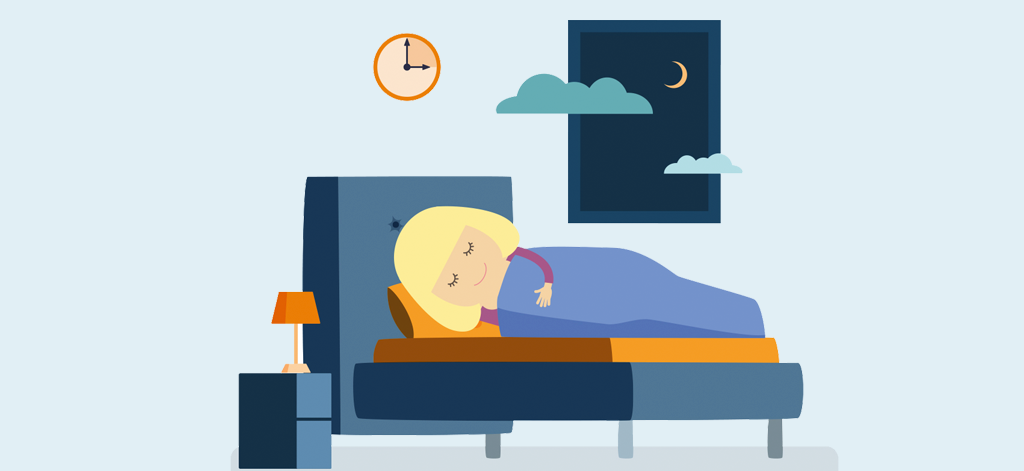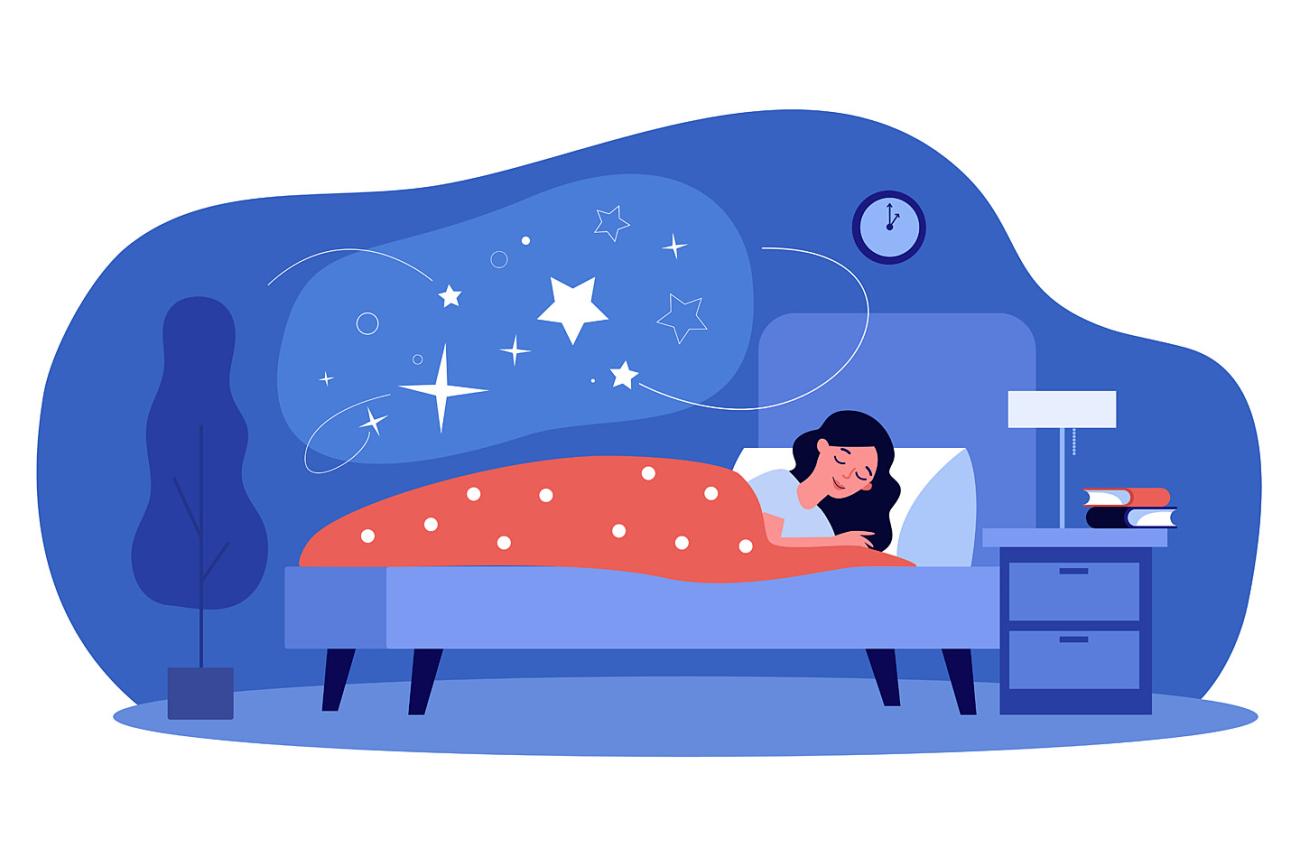The Importance of Sleep for Health and How to Improve Sleep Quality Naturally
Discover why getting quality sleep is fundamental for your physical and mental health. Learn proven natural techniques to improve your sleep quality and transform your life.
Did you know that just one night of poor sleep can affect your immunity, concentration, and even increase your risk of accidents? Unfortunately, around 65% of Americans struggle to get good quality rest, according to recent studies from the CDC.
Sleep isn't just a period of rest - it's when your body performs its most critical repair functions, from muscle recovery to eliminating toxins from your brain. During these precious hours, your body works intensively to restore your energy, strengthen your immune system, and consolidate your memories.
If you're part of the group that faces difficulties sleeping well, this article will show you exactly why sleep is so crucial for your health and, more importantly, how you can naturally improve the quality of your nights. We'll explore everything from the internal mechanisms of sleep to practical strategies that actually work.
Table of Contents
- Why Sleep is Fundamental for Your Health
- The 5 Stages of Sleep and Their Functions
- The Real Risks of Poor Sleep
- How Many Hours You Really Need to Sleep
- How to Create the Perfect Sleep Environment
- Sleep Hygiene: Habits That Transform Your Nights
- Foods and Drinks That Help or Hurt Your Sleep
- Natural Melatonin: How to Stimulate Its Production
- Relaxation Techniques for Better Sleep
- When to Seek Professional Help
Why Sleep is Fundamental for Your Health
During sleep, your body isn't simply "shut down." In fact, it's during this period that the most important processes for keeping you healthy and functioning well take place.
While you sleep, your body executes a true general maintenance operation. Tissues repair themselves, muscles recover from the day's wear and tear, and your immune system produces essential defense cells. It's as if your body has a maintenance crew working during the night shift.
But perhaps the most impressive function is the "brain cleanup." During deep sleep, your brain activates a cleaning system that removes toxins accumulated during the day, including proteins related to the development of diseases like Alzheimer's. Studies show that people who sleep less than 6 hours per night have a 30% higher risk of developing dementia.
Sleep also regulates your hormone production. Hormones like growth hormone (essential for tissue repair), melatonin (sleep regulator), leptin (appetite control), and insulin (glucose regulation) have their production peaks during rest hours.

The 5 Stages of Sleep and Their Functions
To understand how to improve your sleep, you need to know how it works. Your brain goes through five distinct stages during the night, each with specific and essential functions.
Stage 1: Transition (Light Sleep)
This is the bridge between being awake and sleeping. Your brain still responds to external stimuli but begins to slow down. Your muscles relax and breathing becomes slower. It's normal to wake easily during this stage.
Stage 2: Consolidated Light Sleep
Here your brain finally disconnects from the external world. Your body temperature decreases, heart rate slows down, and you enter a more stable sleep state. This stage represents about 45% of your total sleep.
Stage 3: Deep Sleep (Slow Waves)
This is the most restorative sleep stage. Your brain activity dramatically decreases, blood pressure drops, and your body releases large amounts of growth hormone. It's during this stage that most physical recovery and immune system strengthening occurs.
Stage 4: Intense Deep Sleep
The continuation of the previous stage, with even more intense tissue and muscle recovery. Waking during this stage leaves you extremely confused and disoriented.
Stage 5: REM Sleep (Rapid Eye Movement)
Paradoxically, this is when your brain becomes most active, almost as if you were awake. This is where the most vivid and complex dreams occur. This stage is crucial for memory consolidation and emotional processing.
Your body completes this cycle 4 to 6 times per night. Constantly interrupting these cycles impairs all these essential functions.
The Real Risks of Poor Sleep
The consequences of not sleeping well go far beyond feeling drowsy during the day. Science has already proven that chronic sleep deprivation is directly linked to the development of serious diseases.
Metabolic Problems
Sleeping less than 6 hours per night significantly increases your chances of developing obesity and type 2 diabetes. This happens because lack of sleep disrupts the hormones that control hunger and blood sugar. You feel hungrier, especially for carbs and sweets, and your body has difficulty processing glucose properly.
Cardiovascular Disease
People who sleep poorly have a higher risk of developing hypertension, cardiac arrhythmias, and even heart attacks. During insufficient sleep, your cardiovascular system can't adequately recover from the day's stress.
Compromised Immune System
Sleep deprivation drastically reduces the production of NK (natural killer) cells, essential components of your immune system. Result: you get sick more frequently and take longer to recover from infections.
Mental and Cognitive Problems
Lack of sleep is strongly associated with the development of depression, anxiety, and other mental disorders. Additionally, it impairs your ability to concentrate, make decisions, and form memories.
| Hours of Sleep | Obesity Risk | Diabetes Risk | Depression Risk |
|---|---|---|---|
| Less than 5h | +50% | +40% | +60% |
| 5-6 hours | +30% | +25% | +35% |
| 6-7 hours | +15% | +10% | +15% |
| 7-8 hours | Normal | Normal | Normal |
An alarming fact: studies show that sleeping only 5 hours or less per night can increase your risk of mortality from any cause by 15%.

How Many Hours You Really Need to Sleep
While many believe that 8 hours is the gold standard, the truth is that sleep needs vary with age and individual characteristics. There's genetic programming that determines whether you're a "short sleeper" or "long sleeper."
Recommendations by Age
Babies (0-12 months): 12 to 16 hours per day During the first months of life, the brain is in accelerated development, requiring much more time for recovery and consolidation.
Children (1-12 years): 9 to 13 hours per day Growth hormone has its highest peaks during childhood sleep. Children who sleep little have a higher risk of developmental problems and obesity.
Teenagers (13-18 years): 8 to 10 hours per day During adolescence, there's a natural change in circadian rhythm, making young people feel sleepy later and wake up later.
Adults (18-64 years): 7 to 8 hours per day This is the range you're probably in. Most adults function best with 7-8 hours, but some may need only 6 or up to 9 hours.
Seniors (65+ years): 6 to 8 hours per day With aging, it's normal for sleep needs to decrease slightly and for sleep to become more fragmented.
How to Discover Your Individual Need
To determine how many hours you really need, observe how you feel with different amounts of sleep. The most important indicator isn't the number of hours, but how you feel during the day. If you wake up refreshed and maintain consistent energy, you're sleeping enough.
A simple test: during a vacation week, go to bed at the same time every night and wake up naturally, without an alarm. The average amount of sleep you get is probably your individual need.
How to Create the Perfect Sleep Environment
Your bedroom should be a sleep sanctuary. Small changes in the environment can make a huge difference in the quality of your rest.
Light Control
Light is the main regulator of your circadian rhythm. Even small amounts of light can interfere with melatonin production. Invest in blackout curtains or use a sleep mask. If you need some lighting during the night, opt for red or yellow lights with low intensity.
Ideal Temperature
Your body needs to lower its temperature to initiate sleep. The ideal room temperature is between 65°F and 70°F (18°C-21°C). An environment that's too hot prevents your body from naturally entering rest mode. If you don't have air conditioning, use fans or leave windows open for air circulation.
Noise Control
Sudden noises can wake you even if you don't remember. If you can't eliminate all noises, consider using earplugs or white noise machines. Some smartphone apps offer nature sounds that can mask urban noise.
Comfort Investment
Your bed is where you spend a third of your life. It's worth investing in a quality mattress that offers adequate support for your spine. Pillows are also fundamental - they should keep your neck aligned with your spine.
If you're looking to upgrade your sleep setup, consider checking out some home wellness products that can help create the perfect sleep environment.
Organization and Cleanliness
A messy bedroom can generate subconscious anxiety. Keep the environment clean and organized. Reserve the bed only for sleeping and intimate activities - no working or watching TV in bed.
Sleep Hygiene: Habits That Transform Your Nights
Sleep hygiene is a set of practices that prepare your body and mind for restorative rest. These strategies are based on decades of scientific research.
Establish a Consistent Routine
Your body loves predictability. Try to go to bed and wake up at the same time every day, including weekends. This strengthens your natural circadian rhythm. Even if it takes a few weeks, your body will eventually adapt.
Create a Relaxation Ritual
Develop a sequence of relaxing activities 1-2 hours before bed. This can include a warm bath, meditation, reading, or gentle stretching. This ritual signals to your brain that it's time to wind down.
Manage Light Exposure
Blue light from electronic devices is especially harmful before sleep, as it suppresses melatonin production. Turn off phones, tablets, and computers at least 1 hour before bedtime. If you need to use these devices, use blue light filters.
Control Daytime Naps
Naps can be beneficial, but they should be strategic. If you need to nap, do it before 3 PM and for a maximum of 20-30 minutes. Long or late naps can interfere with nighttime sleep.
Exercise Regularly (But at the Right Time)
Regular physical activity significantly improves sleep quality. However, intense exercise up to 4 hours before bed can have a stimulating effect. If you can only exercise at night, opt for gentler activities like yoga or walking.
To deepen your knowledge about relaxation techniques, I recommend meditation and wellness resources that explore how contemplative practices can revolutionize your sleep quality.

Foods and Drinks That Help or Hurt Your Sleep
What you eat and drink can have a dramatic impact on your sleep quality. Some foods are true allies of rest, while others can sabotage your nights.
Foods That Promote Sleep
Cherries and cherry juice are natural sources of melatonin. Studies show that drinking tart cherry juice 30 minutes before bed can improve both sleep duration and quality.
Walnuts and almonds contain magnesium and tryptophan, nutrients that help in the production of serotonin and melatonin. A small portion 1 hour before bed can be beneficial.
Fatty fish like salmon, sardines, and tuna are rich in omega-3 and vitamin D, nutrients associated with better sleep quality. Omega-3 is especially important for regulating sleep neurotransmitters.
Herbal teas like chamomile, valerian, and lemon balm have natural calming properties. Chamomile, in particular, contains apigenin, an antioxidant that binds to brain receptors promoting drowsiness.
To ensure you're getting all the nutrients necessary for restorative sleep, consider quality supplements that include magnesium, B-complex vitamins, and other essential nutrients.
Foods and Drinks to Avoid
Caffeine can remain in your system for 6-8 hours. Avoid coffee, black tea, chocolate, and sodas after 2 PM. Some people are more sensitive and may need to cut off even earlier.
Alcohol may help you fall asleep initially, but it fragments sleep during the night, especially hurting REM sleep. Alcohol has various negative health impacts, including on sleep quality.
Heavy meals force your digestive system to work intensively when it should be resting. Have dinner at least 2-3 hours before bed.
Spicy or acidic foods can cause heartburn and discomfort, keeping you awake.
Dietary Strategies for Better Sleep
If you feel hungry before bed, opt for light and nutritious snacks. A banana with a spoonful of almond butter, or natural yogurt with honey are good options. These foods provide tryptophan and complex carbs that help in serotonin production.
Natural Melatonin: How to Stimulate Its Production
Melatonin is known as the "sleep hormone." Naturally produced by the pineal gland in the brain, it regulates your circadian rhythm and signals to the body that it's time to sleep.
How Your Body Produces Melatonin
Melatonin production is mainly controlled by light exposure. During the day, light suppresses its production. When it gets dark, your pineal gland begins to release melatonin, making you feel drowsy.
The modern problem is that artificial lighting and electronic devices can confuse this natural system, keeping melatonin production suppressed even when it should be increasing.
Strategies to Increase Natural Production
Expose yourself to sunlight in the morning: 15-30 minutes of morning sunlight helps calibrate your circadian rhythm. This strengthens the contrast between day and night, improving nighttime melatonin production.
Dim the lights 2 hours before bed: Use lower intensity lamps with warmer tones (yellowish or reddish) during the evening.
Keep the room completely dark: Even small light sources can interfere with melatonin production. Cover LEDs from electronic devices and consider blackout curtains.
Regulate body temperature: A warm bath 1-2 hours before bed can help. When you get out of the hot bath, the rapid drop in body temperature signals to the brain that it's time to sleep.
Foods That Contain Natural Melatonin
Besides the cherries already mentioned, other foods contain small amounts of melatonin: tomatoes, walnuts, oats, rice, and barley. While the amounts are small, they can contribute to the overall effect.
If you're considering melatonin supplementation, it's important to understand that it should be viewed as temporary aid, not a permanent solution. Meditation and mindfulness practices can be more effective natural alternatives in the long term.
Relaxation Techniques for Better Sleep
Many people have difficulty "turning off" their minds at bedtime. Thoughts about work, worries, or simply the day's agitation can keep you awake even when your body is tired.
4-7-8 Breathing
This technique, popularized by Dr. Andrew Weil, is extremely effective for inducing relaxation. It works like a natural sedative for the nervous system.
How to do it: Inhale through your nose counting to 4, hold your breath counting to 7, exhale through your mouth counting to 8. Repeat the cycle 4 times. This technique activates the parasympathetic nervous system, responsible for relaxation.
Progressive Muscle Relaxation
Start with your toes and work your way up the body, contracting and relaxing each muscle group for 5 seconds. This technique helps you identify and release physical tensions that may be preventing sleep.
Guided Visualization
Imagine a quiet and relaxing place - it could be a beach, forest, or any environment that brings you peace. Focus on sensory details: the sound of waves, the smell of the woods, the feeling of the breeze. This occupies your mind with relaxing thoughts.
Gratitude Technique
Instead of reviewing the day's problems, focus on 3 things you're grateful for. This redirects your thoughts to positive aspects, reducing anxiety and worry.
Sleep Journaling
Keep a notebook beside your bed to write down worries or tasks that come to mind. This "downloads" your thoughts, allowing your mind to rest.
To develop a consistent relaxation practice, consider practical meditation guides that offer progressive exercises to develop your awareness and relaxation capacity.

When to Seek Professional Help
While natural strategies are effective for most people, some sleep disorders require professional medical intervention. Recognizing when to seek help can be the difference between years of suffering and an effective solution.
Signs That You Need Medical Help
Chronic insomnia: If you have difficulty falling asleep or staying asleep for more than 3 weeks, even following good sleep hygiene practices.
Intense snoring with breathing pauses: May indicate sleep apnea, a serious condition that increases the risk of cardiovascular problems.
Excessive daytime sleepiness: If you feel extremely tired during the day, even after supposedly sleeping 8 hours.
Abnormal behaviors during sleep: Sleepwalking, night terrors in adults, or excessive leg movements.
Significant impact on quality of life: When sleep problems affect your work, relationships, or mental health.
Specialized Professionals
Neurologists specializing in sleep can diagnose and treat complex sleep disorders.
Pulmonologists are specialists in sleep apnea and other breathing-related problems.
Psychologists specializing in cognitive-behavioral therapy for insomnia offer highly effective non-medication treatments.
Available Tests
Polysomnography is the most comprehensive test, performed in sleep laboratories. It monitors brain waves, eye movements, muscle activity, heart rate, and breathing during an entire night.
Home studies are a more convenient alternative for specific cases, especially suspected sleep apnea.
Professional Treatments
Cognitive-Behavioral Therapy for Insomnia (CBT-I) is considered the gold standard treatment for chronic insomnia, with superior long-term effectiveness compared to medications.
CPAP devices for sleep apnea can completely transform the quality of life for people with this condition.
Medications may be necessary in specific cases, always under strict medical guidance.
The important thing is not to normalize poor sleep. Sleeping well isn't a luxury, it's a basic necessity for your health and well-being.
Conclusion: Your Sleep, Your Health, Your Life
We've reached the end of this journey about the importance of sleep, and I hope you've realized that sleeping well isn't just about waking up rested - it's about giving your body and mind the opportunity to repair, grow, and strengthen each night.
The strategies I've shared aren't complicated theories or miracle solutions. They're practices based on solid science and tested by millions of people who transformed their quality of life simply by prioritizing sleep.
Remember that gradual changes are more sustainable than radical transformations. Start by implementing one or two techniques and gradually build your new sleep habits. Be patient with yourself - it may take a few weeks for your body to fully adapt.
Your future self will thank you for every well-slept night. Good sleep quality not only improves how you feel today but is an investment in your long-term health, protecting you against diseases and keeping your mind sharp for years to come.
If this article was helpful to you, share it with someone who could also benefit from this information. And remember: if sleep problems persist despite changes, don't hesitate to seek professional help. Your nutrition can also be a great ally in this journey toward more restorative nights.
Sleep well, live better!

